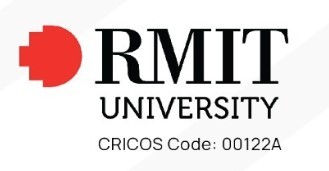
Master of Data Science


Overview
Duration
FULL-TIME 2 YEARS
FULL-TIME 2 YEARS
Scholarship
YES
YES
Fee
AU$39,360
AU$39,360
Intake
FEBRUARY, JULY
FEBRUARY, JULY
Overview
- Gain the skills to navigate huge volumes of data generated via social media, financial transactions, transportation and scientific discovery as a data scientist.
- This interdisciplinary field of data science combines computer science with mathematical statistics and domain expertise to manage and analyse data. As a data scientist, you'll develop the capability to derive insight and opportunity from the vast repositories of information that organisations collect. Data science also puts an emphasis on the specialised computational skills required to manage and analyse big data from sources such as massive sensors, mobile and transaction data.
- Through data science, businesses gain a competitive edge, governments deliver more targeted services and research teams make new discoveries.
Inquire Now
Career
- Any organisation handling large volumes of data needs qualified data scientists. Across all sectors of the economy – including IT, business, banking and finance, science and engineering, government, health and medical – organisations can gain a competitive edge by better managing and analysing their data.
- As data science is still a new and emerging field, the roles available are quite varied and diverse.
- As well as the title of data scientist, other positions include analytics specialist, business intelligence analyst/developer, data analyst, data architect, data engineer, data miner, research scientist and web analyst.
- While industry expertise is at the heart of this degree, studying at RMIT also means you are physically located close to Melbourne’s data professionals in the central business district – with many opportunities to forge links with local industry and jobs, including meet-ups, events and seminars, as well as other networking occasions.
- After being exposed to the latest theoretical and practical expertise, graduates are expected to become influential leaders within their organisations.
- There is also a research stream in this course, in which students work with a data science researcher on more technical data science innovation.
Entry requirement
- To study this course you will need to complete one of the following English proficiency tests:
- IELTS (Academic): minimum overall band of 6.5 (with no individual band below 6.0)
- TOEFL (Internet Based Test - IBT): minimum overall score of 79 (with minimum of 13 in Reading, 12 in Listening, 18 in Speaking and 21 in Writing)
- Pearson Test of English (Academic) (PTE (A)): minimum score of 58 (with no communication band less than 50)
- Cambridge English: Advanced (CAE): minimum of 176 with no less than 169 in any component.
Popular Courses
Start your journey with landmark today!
Find your perfect course
Answer a few questions and
our course matcher will do the rest
Head Office
Level 5, IT Plaza
Kamaladi, Kathmandu
Tel: +977 14542781, 9845566225
E-mail: info@landmarkedu.com
Kamaladi, Kathmandu
Tel: +977 14542781, 9845566225
E-mail: info@landmarkedu.com
Sydney office
Suite 1 Level 1,
46 Macquarie Street,
Parramatta, NSW
Tel: +61 415 122 814
46 Macquarie Street,
Parramatta, NSW
Tel: +61 415 122 814
Branch office
Sahidchowk, Chitwan
Tel: 056-590825
Tel: 056-590825
Mahendrachowk, Biratnagar
Tel: 021-590828
Tel: 021-590828
Level 2, Milanchowk, Butwal, Rupandehi
Tel: 977-71-591694
Tel: 977-71-591694
© Landmark Education. All rights reserved.


